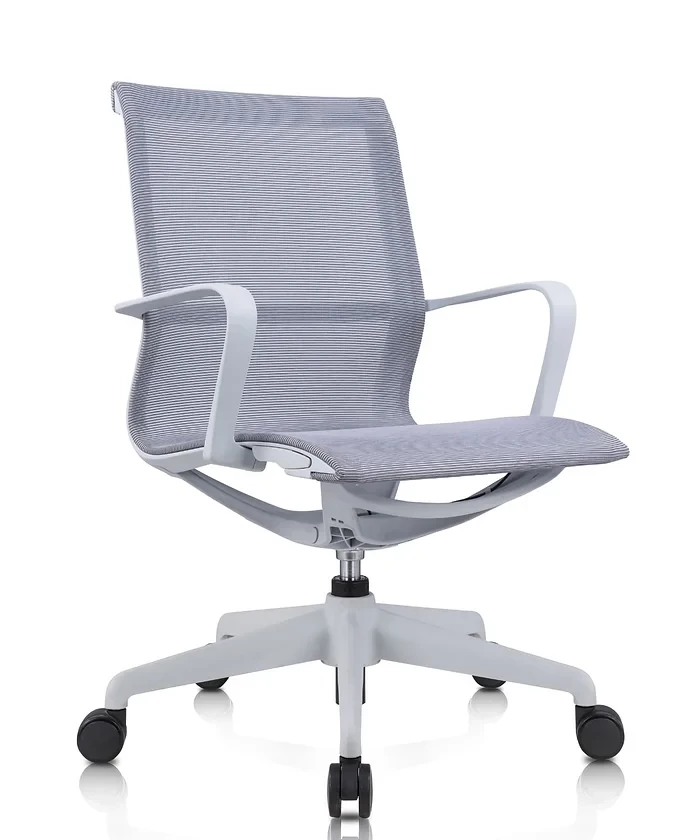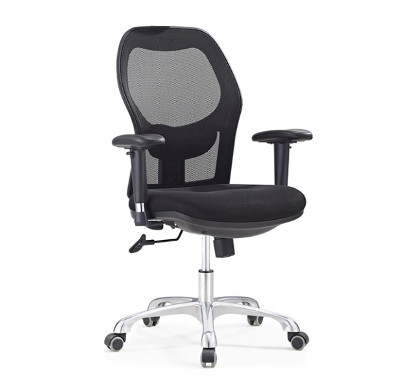
How to Choose the Best Chair for a Home Office with Limited Space
Introduction
Setting up a home office in a limited space can be a challenge, especially when it comes to selecting furniture that balances comfort, style, and functionality. The right chair can make a world of difference in your productivity, posture, and overall comfort during long working hours. In this guide, we will explore the key factors to consider when choosing the best chair for a small home office, helping you make the most of your limited space without sacrificing comfort or design.
1. Consider Size and Footprint
In a small home office, the size of the chair is crucial. Look for compact chairs that fit well within your space without overcrowding the room. A chair with a smaller footprint will allow you to move freely and keep the workspace uncluttered. Consider chairs with adjustable features to ensure flexibility in space management.
2. Ergonomics for Comfort and Health
Even in a smaller space, ergonomics should never be compromised. Look for a chair that supports good posture with adjustable seat height, lumbar support, and armrests. A well-designed ergonomic chair helps reduce strain on your back, neck, and shoulders, ensuring you stay comfortable throughout the day.
3. Mobility and Flexibility
For a limited home office space, you need a chair that offers easy mobility. Chairs with smooth-rolling wheels allow you to move around your workspace without effort. This is particularly important if your office setup includes multiple workstations or if you need to adjust your position frequently.
4. Material and Durability
Consider the material of the chair for both comfort and durability. Mesh chairs are often a great choice for small spaces, as they are breathable, lightweight, and easy to maintain. Additionally, materials like high-quality fabric or leather are durable and can add a touch of elegance to your home office.
5. Style and Design
The design of the chair should complement the aesthetic of your home office. Choose a chair that blends seamlessly with your existing furniture and color scheme. Sleek, minimalist designs work particularly well in small spaces, as they do not overwhelm the room's decor. Look for neutral colors or designs that match your office’s overall style.
6. Foldability and Storage
If your home office doubles as a living space or other functional area, foldable or stackable chairs are a great option. These chairs can be easily stored when not in use, allowing you to reclaim space in your room. Alternatively, chairs with a slim profile that can be tucked away in a corner are also ideal for saving space.
7. Adjustability and Customization
The ability to adjust the chair to your personal preferences is essential, especially in a home office where you may spend many hours working. Look for chairs that allow you to adjust the height, tilt, and armrests for a customized fit. This ensures the chair accommodates your body type and preferred sitting posture.
8. Budget Considerations
With limited space, it's tempting to prioritize compactness over comfort or quality. However, it's important to find a balance between cost and functionality. Look for high-quality chairs that offer comfort and durability within your budget. Investing in a good chair for your home office can significantly enhance your work environment and productivity.
9. Noise Level
In a smaller space, noise can be a concern, especially if the chair's wheels create constant rolling sounds. Opt for chairs with quieter, rubberized wheels, which are less likely to create noise when you move around. This is particularly helpful if your home office is near quiet spaces like a bedroom or living area.
10. Comfort for Long Hours
If you plan to spend long hours in your home office, comfort is key. Choose a chair with adequate padding and cushioning, particularly in the seat and backrest. A well-cushioned chair prevents discomfort and fatigue, allowing you to focus on work for extended periods.
Additional Considerations When Choosing a Chair for a Small Home Office
11. Slim Profile with Maximum Support
For smaller offices, a slim profile chair that still offers full support is essential. Look for ergonomic chairs that provide support for your back and legs without taking up too much space.
12. Multi-Functionality
In limited space, multi-functional chairs that can serve various purposes—such as conference calls, video meetings, or casual sitting—are a good choice. Consider chairs that adapt easily to different work modes.
13. Ease of Assembly
A chair that is easy to assemble can save you time and frustration, particularly if you're setting up a home office in a hurry. Look for options with simple, straightforward instructions and minimal tools required for assembly.
14. Visual Appeal in a Small Office
While functionality is crucial, the visual appeal of your chair can also impact the overall atmosphere of your office. Choose a chair that adds to the ambiance of your workspace and makes the room feel open and welcoming.
15. Chair Height Range
For smaller desks, it's important to ensure the chair height is compatible with your desk. Look for a chair that can adjust to a wide height range, allowing you to easily align the chair with your desk for a comfortable working position.
16. Minimalist Designs for Less Clutter
In a small office, minimalist chair designs can help keep the space feeling open and organized. Opt for a sleek, modern chair with clean lines that won’t overwhelm your space or contribute to clutter.
17. Chair Weight and Portability
Lightweight chairs are easier to move around in a small home office, especially if you need to adjust the layout or move the chair out of the way. Choose a chair that is both portable and easy to lift when needed.
18. Comfort Features Beyond the Basics
Look for additional comfort features like lumbar support, adjustable headrests, or armrests to further enhance comfort. These small adjustments can make a big difference in reducing discomfort during long working hours.
19. Climate Considerations
Consider how your chair material interacts with the climate in your home office. Mesh chairs, like the ones we recommend, are breathable and ideal for warmer climates, while fabric or leather chairs may be more comfortable in cooler areas.
20. Long-Term Investment
Finally, consider the long-term durability of your chair. Even if space is limited, investing in a high-quality chair that will last several years is a smart choice, as it will improve your home office experience and save money over time.
Recommended Products
Finmon Mesh Office Chair – Grey
This ergonomic mesh chair offers breathability and comfort, making it an excellent choice for small home offices. Its sleek design and adjustable features allow for a customized fit, while its compact size ensures it won't take up too much room.

View Finmon Mesh Office Chair – Grey
Mujaan Mesh Low-Back Ergonomic Chair
The Mujaan mesh low-back ergonomic chair provides support and comfort with a minimalistic design. Its adjustable features ensure a comfortable fit for different body types, and it is well-suited for smaller home office spaces.

View Mujaan Mesh Low-Back Ergonomic Chair
Final Thoughts
Choosing the best chair for a small home office requires careful consideration of both functionality and space efficiency. The right chair will ensure comfort, promote good posture, and enhance your productivity, all while fitting seamlessly into your limited space. By considering factors like size, adjustability, and ergonomics, you can create a comfortable and efficient workspace in even the smallest of home offices.
FAQ
What is the best type of chair for a small home office?
Mesh ergonomic chairs are ideal for small offices because they are compact, breathable, and provide ample support. Look for adjustable features to ensure comfort.How can I make my home office feel more spacious?
Opt for minimalist furniture, light-colored chairs, and streamlined designs. This will help make the space feel open and uncluttered.Are ergonomic chairs necessary in a home office?
Yes, an ergonomic chair helps prevent discomfort and strain, especially if you spend long hours sitting. It promotes good posture and reduces the risk of back and neck issues.What features should I look for in a chair for all-day use?
Look for features like adjustable seat height, lumbar support, armrests, and a breathable material. These features ensure comfort and support throughout the day.


